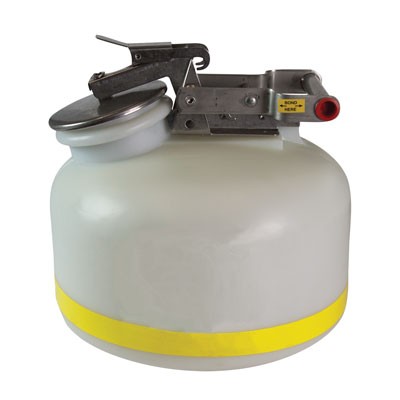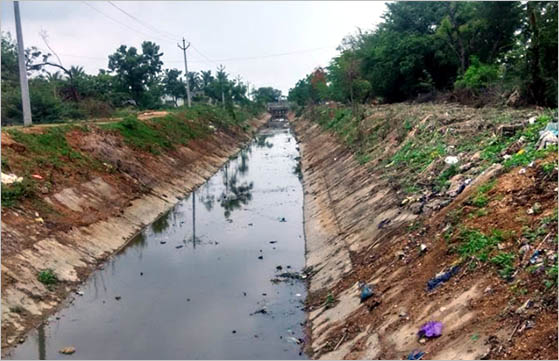Understanding the Comprehensive Process of Liquid Waste Disposal: Best Practices and Environmental Effect Considerations
The management of fluid waste disposal is a multifaceted concern that needs a thorough understanding of numerous best techniques and their associated ecological effects. From the kinds of fluid waste generated to the approaches utilized for collection, treatment, and final disposal, each action plays an essential function in safeguarding ecological communities and public wellness.
Kinds Of Fluid Waste
Understanding the different kinds of liquid waste is vital for effective monitoring and disposal methods. Liquid waste can be extensively classified into several kinds, each calling for distinct handling and treatment strategies.
Industrial liquid waste typically has dangerous products, consisting of hefty steels, solvents, and chemicals, produced during producing procedures. These wastes require rigorous governing compliance to safeguard human health and wellness and the setting. Residential fluid waste primarily refers to wastewater generated from homes, including sewer and greywater, which, although much less poisonous, can still pose significant dangers if poorly managed.
Agricultural liquid waste, including overflow from farms, commonly has plant foods and pesticides that can result in ecological destruction otherwise dealt with adequately. Medical liquid waste, generated from healthcare facilities, includes infected liquids such as physical liquids and chemicals, requiring specialized disposal approaches to stop infection and environmental contamination.
Finally, oil and grease waste, usually created by restaurants and automotive industries, can create extreme obstructions in drain systems if not managed effectively. Recognizing these groups assists in targeted methods for treatment, compliance with regulations, and effective disposal methods, inevitably advertising environmental sustainability and public health safety.

Collection Methods
Reliable collection techniques are essential for the correct administration of liquid waste, making certain that it is gathered securely and effectively before therapy or disposal. Various strategies are employed relying on the sort of fluid waste produced, the quantity, and the particular features of the waste.
One typical approach is the use of dedicated collection storage tanks or sumps, which are designed to catch fluid waste at the source. These systems usually integrate pumps that facilitate the transfer of waste to larger storage space containers or treatment centers. Furthermore, mobile collection units furnished with vacuum innovation are used in circumstances where waste is generated periodically or in hard-to-reach places.
For industrial setups, closed-loop systems can effectively lessen leaks and spills, allowing for the healing and reuse of fluid waste. It is also important to educate workers on correct collection protocols to alleviate threats associated with harmful materials.
In addition, executing normal upkeep timetables for collection equipment makes sure optimum efficiency and safety and security. The combination of innovative surveillance systems can enhance collection efficiency by providing real-time information on waste levels and potential hazards. In general, effective collection methods are foundational to sustainable liquid waste management practices.
Treatment Processes
Treatment procedures play a vital role in the monitoring of fluid waste, changing possibly harmful materials into reusable sources or secure effluents - liquid waste disposal. These procedures can be generally classified right into physical, chemical, and biological methods, each tailored to attend to details impurities present in the waste stream
Physical treatment methods, such as sedimentation and filtering, job by getting rid of put on hold solids and particulate matter. These strategies are often the initial step in the therapy chain, properly lowering the tons on subsequent processes. Chemical therapies include using reagents to neutralize unsafe materials, precipitate hefty steels, or oxidize organic toxins, consequently improving the safety of the effluent.
Biological therapy processes, consisting of activated sludge systems and anaerobic food digestion, take advantage of on the all-natural capabilities of microbes to deteriorate natural matter. These techniques are specifically efficient for wastewater having naturally degradable toxins. Advanced treatment innovations, such as membrane layer filtering and progressed oxidation processes, are significantly utilized to attain higher levels of filtration.
Integrating a mix of these treatment techniques not just guarantees compliance with governing standards however also advertises environmental sustainability by recuperating beneficial resources from liquid waste.
Disposal Options
Exactly how can organizations guarantee the accountable and risk-free disposal of fluid waste? Reliable disposal alternatives are important for guarding public health and the environment. The primary techniques include land disposal, therapy, and incineration adhered to by discharge right into municipal wastewater systems.
Land disposal involves the careful control of fluid waste in marked land fills, guaranteeing that it does not leach into bordering dirt or water. anonymous Incineration, on the various other hand, topics fluid waste to high temperatures, converting it into ash and gases, which require correct purification to minimize emissions. This method appropriates for contaminateds materials that can not be dealt with with standard ways.
In cases where fluid waste can be dealt with, organizations may go with chemical or organic treatment procedures to counteract dangerous elements before releasing the dealt with effluent into community systems. This path usually aligns with governing demands, guaranteeing that the effluent meets safety and security criteria.
Eventually, organizations have to carry out comprehensive assessments of each disposal alternative to identify its viability, taking into consideration elements such as waste make-up, regulative compliance, and possible dangers to health and the setting. By selecting ideal disposal techniques, businesses can add to an accountable waste monitoring method.
Ecological Effect
The environmental effect of liquid waste disposal is a critical factor to consider for companies seeking to reduce their eco-friendly impact. Additionally, the discharge additional info of neglected or improperly dealt with waste into surface area waters can result in eutrophication, leading to oxygen deficiency and the subsequent death of fish and other organisms.

To alleviate these effects, organizations need to take on best techniques such as applying strenuous waste treatment procedures, advertising recycling and reuse, and sticking to governing requirements. By taking a positive method to liquid waste management, entities can significantly reduce their ecological impact while supporting sustainable growth objectives. Eventually, a comprehensive understanding of the ecological influences related to liquid wikipedia reference garbage disposal is essential for educated decision-making and liable stewardship of natural deposits.
Final Thought
Efficient management of fluid waste is vital for securing environmental honesty and public health and wellness. By taking on best techniques in therapy, disposal, and collection, together with adherence to regulatory criteria, the potential for harmful contamination of ecological communities can be substantially reduced. Constant advancements in technology and procedures add to sustainable waste monitoring efforts. Eventually, a comprehensive understanding of liquid garbage disposal not only reduces ecological impacts however also promotes a dedication to responsible resource monitoring and ecological stewardship.
The administration of liquid waste disposal is a complex problem that calls for a complete understanding of various finest techniques and their associated ecological effects. From the kinds of liquid waste produced to the methods used for collection, therapy, and final disposal, each action plays a vital duty in protecting ecological communities and public health.The ecological influence of fluid waste disposal is a vital consideration for companies seeking to minimize their ecological impact. Eventually, a thorough understanding of the ecological influences linked with liquid waste disposal is necessary for informed decision-making and responsible stewardship of all-natural resources.
Eventually, an extensive understanding of liquid waste disposal not just mitigates environmental influences however likewise cultivates a commitment to liable source administration and environmental stewardship.